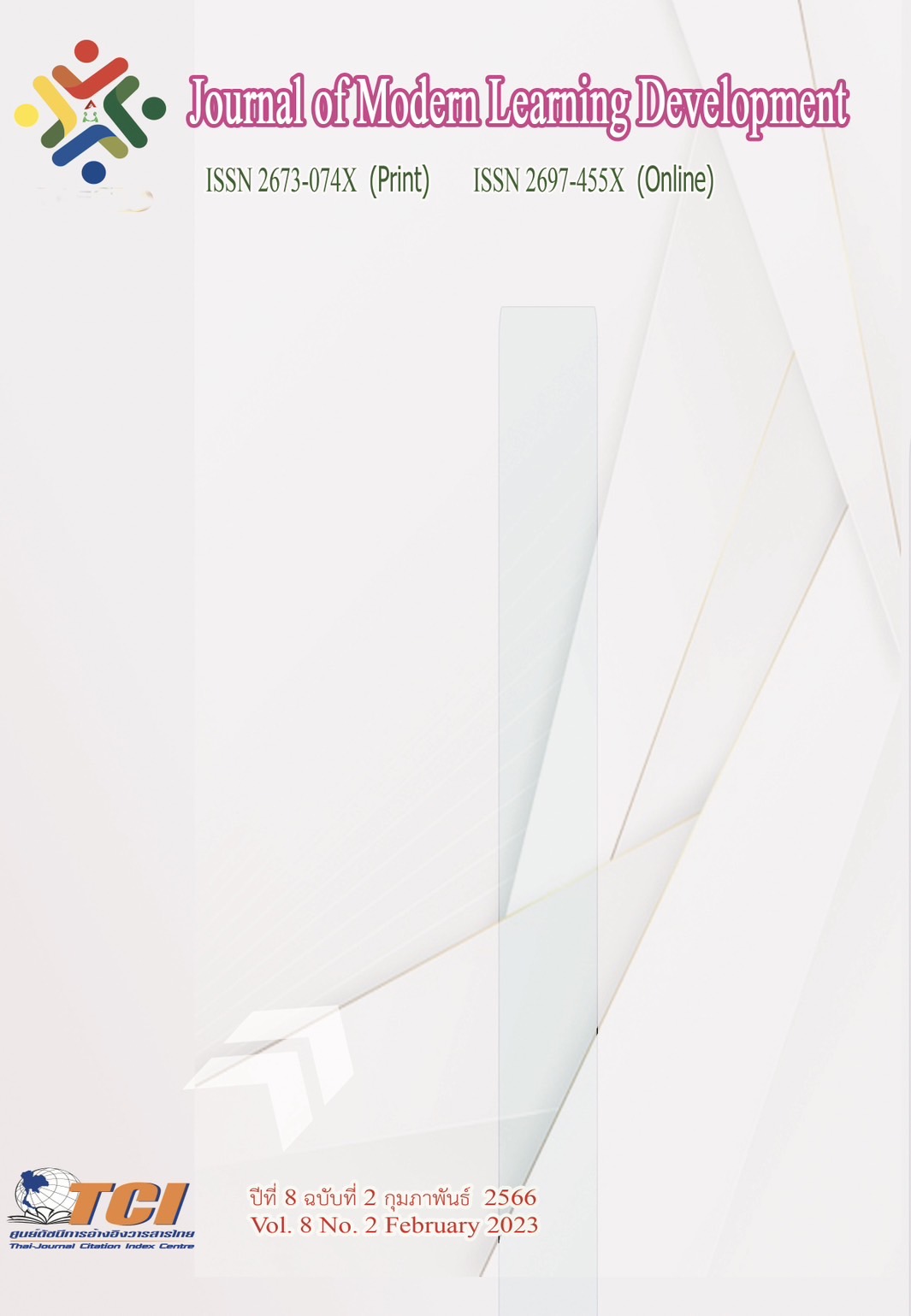Administration according to the good Buddhist governance of the Nan Office For Skill Development
Main Article Content
Abstract
The objectives of this research were to study 1) the level of administration of the Nan Skills Development Office, 2) the relationship between Buddhist good governance and the administration of the Nan Skills Development Office, and 3) problems, obstacles and issues. Recommend to the administration of the Nan Skill Development Office proceed according to the integrated research methodology This was a quantitative research. The tool was a questionnaire. The population consisted of 318 people who came to use the services of the Nan Skills Development Office. The data were analyzed by frequency, percentage, mean, standard deviation. Pearson's Correlation Coefficient Test and qualitative research By using in-depth interviews, the tool is an interview form with 10 key informants/person and a summary technique was used to present guidelines. The results showed that
1. The administration of the Nan Skill Development Office found that the overall level was at the highest level and Buddhist principles in the administration of the Nan Skill Development Office Overall, it is at the highest level.
2. The relationship between the Buddhist good governance principle and the administration of the Nan Skill Development Office found that there was a high positive correlation coefficient (r = .865) with a statistically significant level of .01.
3. Problems, obstacles and suggestions for the management of the Nan Skills Development Office found that in the problems, obstacles, there were external changes. Ignorance of changes in innovation and technology insincerity Lack of consistency, lack of perseverance, patience, and use of the wrong people. lack of enthusiasm in terms of recommendations for management Promoting development through training to enhance the potential of the trainers more knowledge and higher professional skills Training of staff to be knowledgeable in technology System development with modern technology to keep up with the changes of the modern world.
Article Details
References
กรมพัฒนาฝีมือแรงงาน. (2564). คู่มือนโยบายการกำกับดูแลองค์กรที่ดี ประจำปีงบประมาณ พ.ศ.2564, กรุงเทพมหานคร : กรมพัฒนาฝีมือแรงงาน.
ปรียานุช ดีพรมกุล. (2556). ปัจจัยที่มีอิทธิพลต่อการตัดสินใจเข้าฝึกอาชีพกรมพัฒนาฝีมือแรงงาน. การค้นคว้าอิสระบริหารธุรกิจมหาบัณฑิต สาขาวิชาบริหารธุรกิจ. บัณฑิตวิทยาลัย: มหาวิทยาลัยศรีปทุม.
รุจิภาส คำแก้ว. (2559). ความสัมพันธ์ระหว่างพฤติกรรมคุณธรรม และพฤติกรรมการบริหารงานของผู้บริหารตามความคิดเห็นของครูในโรงเรียนสังกัดสำนักงานเขตพื้นที่การศึกษาประถมศึกษาสมุทรปราการเขต 2. วารสารมหาวิทยาลัยราชภัฏธนบุรี. 10 (1), 86 – 97.
วีรณัฐ โรจนประภา. (2559). การนำหลักพุทธธรรมมาประยุกต์ใช้ในการสร้างสังคมแห่งสัมมาปัญญาในประเทศไทย”. วารสารวิชาการบัณฑิตวิทยาลัย มหาวิทยาลัยสวนดุสิต. 12 (3), 217 – 231.
สำนักงานพัฒนาฝีมือแรงงานน่าน. (2564). คู่มือนโยบายการกำกับดูแลองค์กรที่ดี ประจำปีงบประมาณ พ.ศ. 2564. น่าน: สำนักงานพัฒนาฝีมือแรงงานน่าน.
สุรเดช อินปั๋น. (2563, กรกฎาคม-ธันวาค). ศึกษาความคิดเห็นของประชาชนต่อภาวะผู้นำตามหลักพละ 4 ของผู้นำองค์การบริหารส่วนตำบล อำเภอพร้าว จังหวัดเชียงใหม่”. วารสารการพัฒนาการบริหารนวัตกรรมสังคม. 2 (2), 1-11.
เสกสรรค์ จิตพงษ์. (2560). แนวทางการพัฒนาฝีมือแรงงานในจังหวัดยโสธร รองรับการเปิดประชาคมเศรษฐกิจอาเซียน. วิทยานิพนธ์รัฐประศาสนศาสตรมหาบัณฑิต สาขาวิชาการจัดการภาครัฐและภาคเอกชน. บัณฑิตวิทยาลัย: มหาวิทยาลัยราชภัฏมหาสารคาม.


